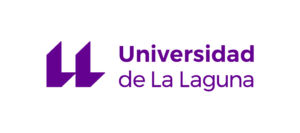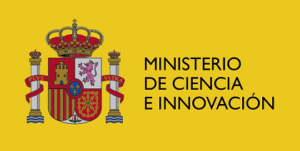Call for Papers — Recognition and Recovery of Caribbean Canadian Cultural Production for a special issue of Canada and Beyond: a Journal of Canadian Literary and Cultural Studies (Issue 10, 2021) Guest Editors: Michael A. Bucknor and Cornel Bogle
Over the past decade we have witnessed alarming moments of documented and widely circulated images, videos, and accounts of racist violence against Black, Indigenous and People of Color (BIPOC). These spectacular moments of violence — compounded by historical and ongoing systematic racism that BIPOC face daily — have led to an increased attention to scholarship and activism that have long sought to elucidate the racist, white supremacist, homophobic, and patriarchal violences that undergird Western modernity. Indeed, the rise of Black Lives Matter, Indigenous sovereignty movements such as Idle No More, as well as campaigns against anti Asian racism in the wake of increasing racist attacks against Asian communities during the coronavirus pandemic, have foregrounded questions and assertions regarding institutional tokenism, and the erasure of lives, literatures, histories of activism and resistance, and cultural production by BIPOC, particularly in North America.
In this age of growing awareness of the political and ethical significance of under-recognized and/or obscured histories and cultures of racialized peoples in the United States and Canada, we see scholarly work that engages with the critical acts of recovery and recognition as pivotal to redressing skewed accounts of the communities and cultures that we study. Consequently, this special issue of Canada and Beyond turns towards Caribbean Canadian cultural production and invites scholarship that is engaged in the critical tasks of recovery and recognition of figures, texts, debates, collectives, and institutions that have influenced the field.
We note that in recent years, Caribbean Canadian writers and artists have received increased recognition in the form of major awards and prizes, national and international honours, more reviews and critical writing on their work, and incorporation into secondary and post-secondary curricula in both Canada and the Caribbean. This increased attention to Caribbean Canadian artists and writers has led to an improvement in the sales of their work and in some cases the achievement of celebrity status. However, even as works by Caribbean Canadian artists and writers are recognized, their identity as Caribbean Canadian is often subsumed under other means of identification, as part of a multiculturalist regime of recognition, namely Black Canadian, South Asian Canadian, Chinese Canadian, Queer Canadian, or either Canadian or Caribbean, but rarely both. Accordingly, we are left to ask what are the political stakes of recognizing this category of Caribbean Canadian? What does this recognition obscure or reveal? What does this multiply pronged labelling signal about understanding Canada and beyond?
Though the politics of institutional recognition has taken on a renewed urgency in Canada’s creative industries, projects of recovery of archives produced by historically marginalized communities in Canada have also begun to emerge. For example, Karina Vernon’s regional Black literary reclamation has helped in the repositioning of Canada in relation to Black diasporic literary historiography, and David Austin’s work has helped to popularize Caribbean Canadian internationalist radicalisms in Montreal during the 1960s. Even when we have the recovery of Caribbean Canadian cultural production through the recuperation of Black Canadian literary history by the archival works of Lorris Elliott or George Elliott Clarke, for example,
there are still trails of inquiry to be pursued, namely, how many self-published Caribbean Canadian writers fall beneath the radar of institutional recognition? What are the terms through which recognition is given to Caribbean Canadian writers and artists? To what extent does the critical privileging of anglophone Caribbean cultural production obscure works by other language groups from the Caribbean? Are there provinces in Canada and countries in the Caribbean that attract more attention than others in Caribbean Canadian critical discourse?
In addition to the areas of general concerns outlined above, we invite essays and interviews that focus on both historical and contemporary Caribbean Canadian cultural production including literature, music, film, and visual arts, particularly related to the following topics:
– The recuperation of writers and artists not traditionally recognized as Caribbean Canadian – Caribbean Canadian and Black Lives Matter
– Caribbean Canadian archival materials
– Institutional networks and supports for Caribbean Canadian art
– Caribbean Canadian art and crises
– LGBTQ+ Caribbean Canadian art
– Women artists and women’s work
– Caribbean Canadian Children’s and Young Adult literature
– Appropriation and Erasure
– Caribbean Canadian Life Writing
– Francophone Caribbean Canadian writing
– Spanish Language Caribbean Canadian writing
– Caribbean Canadian and Indigenous relations
– The reception of Caribbean Canadian art
– Caribbean Canadian art in Western Canada
– Caribbean Canadian film
– Emerging Caribbean Canadian writers and artists
– Self-publishing and traditional publishing of Caribbean Canadian writing
All submissions to Canada & Beyond must be original, unpublished work. Articles, between 6,000 and 7500 words in length, including endnotes and works cited, should follow current MLA bibliographic format. Submissions should be uploaded to Canada & Beyond’s online submissions system (OJS) and simultaneously sent to caribbean.canlit@gmail.com by July 31, 2021 to be peer-reviewed for Issue 10, 2021. For more information please contact the guest editors at the e-mail address above.

